We recently connected with Randy Lewis and have shared our conversation below.
Randy, we’re thrilled to have you sharing your thoughts and lessons with our community. So, for folks who are at a stage in their life or career where they are trying to be more resilient, can you share where you get your resilience from?
When I was in college, I developed debilitating pain in my hands from fine motor activities like computer usage, piano playing, and texting. The problem was mysterious and unprecedented, and prevented me from using a computer with my hands for more than four years. In order to keep going, I learned to use the computer with many adaptive devices, such as a foot mouse, head mouse, speed recognition, and even learned to play video games with my feet. Here’s a video I made at the time of me playing super smash with my feet: https://www.youtube.com/watch?v=V8xoLa9CUVE
All the while, I visited every doctor that would see me to try to figure out what was wrong, but was always met with the same response–“you seem fine–we don’t see anything abnormal on our tests”.
Eventually, after years of becoming increasingly limited in my activities, I went down an internet rabbit hole and came to the conclusion that my pain was psychosomatic, which is to say, real pain caused by poorly understood psychological phenomenon. I tested this hypothesis, and fully recovered within a couple of weeks just by returning to my activity and telling myself the pain had no physical basis. You can read a fuller summary of my experience on my post on the tmswiki, which is the site that ended up helping me understand and solve my problem: https://www.prtrecovery.org/threads/recovered-from-4-years-of-computer-hand-rsi.5/
I realize that this story makes me sound totally insane. It’s worth mentioning that I’m a pretty skeptical and concrete person. I’m an engineer by training, an atheist in faith, and generally relentlessly practical.
However, regardless of the underlying truth of this medical problem, struggling with it so hard and for so long was one of the hardest things I’ve ever had to do, and has made everything else since then seem so much easier by comparison. I remember when I initially recovered, being able to use the computer unhindered literally felt like a superpower. It’s been long enough since then that I no longer think of it on a daily basis, but the experience has still played a large role in shaping who I am and making me resilient to challenges.
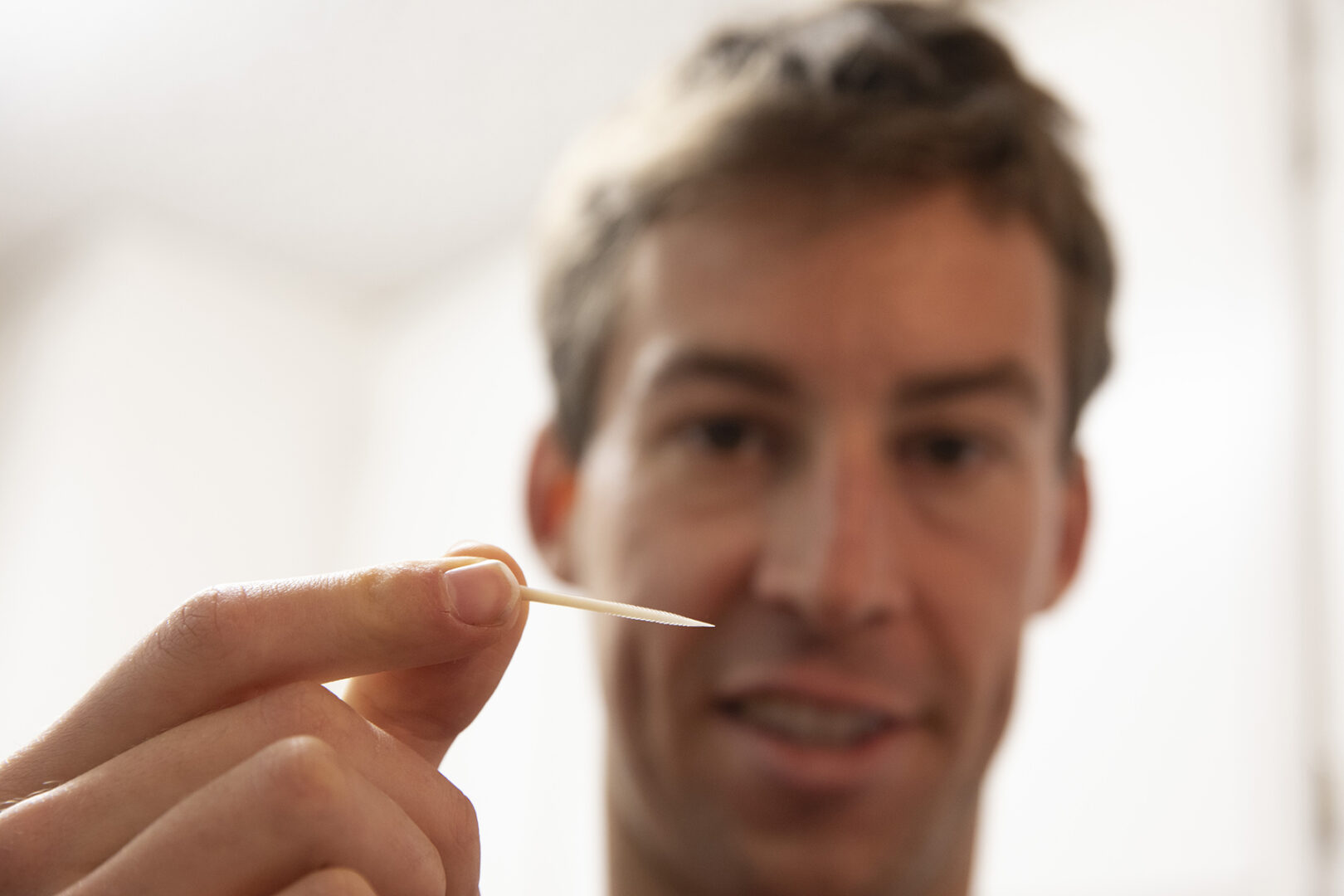
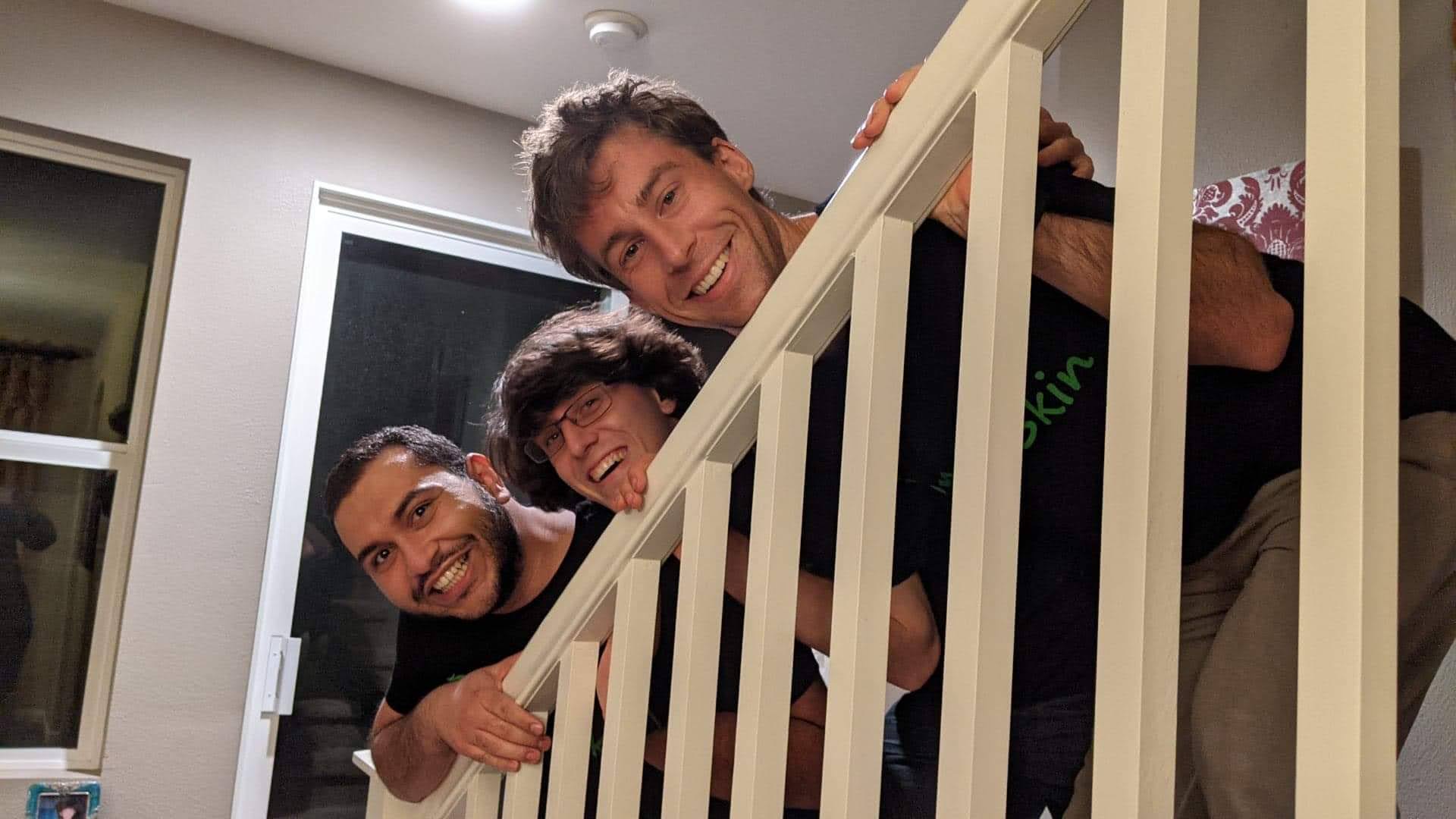
Let’s take a small detour – maybe you can share a bit about yourself before we dive back into some of the other questions we had for you?
I am one of three cofounders of DragonSkin, a company that makes stingray-resistant footwear for beachgoers: https://mydragonskin.com/ We met in the dorms at UC San Diego, and always knew we wanted to start a company together, but took a while to coalesce on an idea. The idea came when we got into surfing, learned about the stingray problem in Southern California ( https://mydragonskin.com/blogs/welcome-to-the-dragonskin-blog/stingray-experiences-what-its-like-getting-stung ) and the lack of existing good solutions ( https://mydragonskin.com/blogs/welcome-to-the-dragonskin-blog/do-surf-booties-or-water-shoes-protect-against-stingrays ). With our respective backgrounds in engineering and business, we set out to solve the problem ourselves
The first year we largely focused on stingray science, prototyping, and testing. We iterated through literally hundreds of designs, testing them with live stingrays, a stingray-sting replication pendulum we created, and in the water on our surfboards for wearability/durability. You can read in more detail about our testing process at: https://mydragonskin.com/pages/testing-methods
The next three years of DragonSkin we largely spent getting the booties manufactured overseas. This turned out to be much harder than expected, between the communication barrier, long lead times for iterations, and the inherent conflict between manufacturer’s economic interest in volume vs a startup’s interest in quick iteration.
In 2023, we sold our first several hundred factory-manufactured pairs to customers. We focused heavily on getting feedback, which generally was positive, although there were some rough edges to iron out.
Now that we’re sure we can deliver a design that our customers like and that greatly mitigates the risk of being stung, we’re investing heavily in marketing for the first time in our company’s history, and scaling up significantly. You can learn more about DragonSkin® Achilles Heels, the world’s first bootie purpose-built to help protect from stingrays at: https://mydragonskin.com/products/achillesheels
PS: This year, we’re also expanding our product line, and we have just come out with a surfing snapback called Kraken. You can check it out at: https://mydragonskin.com/products/kraken-performance-snapback-hat-founders-model
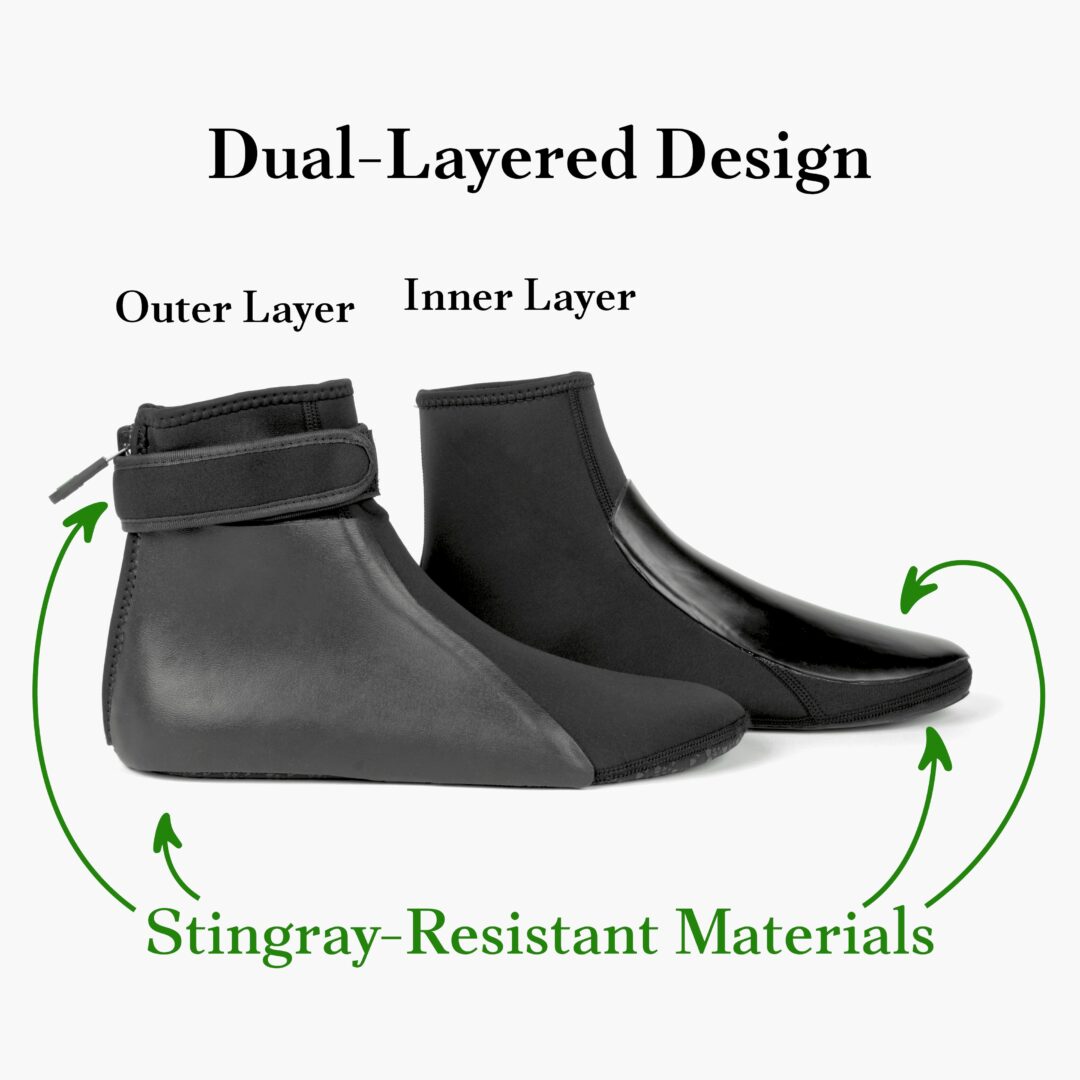

There is so much advice out there about all the different skills and qualities folks need to develop in order to succeed in today’s highly competitive environment and often it can feel overwhelming. So, if we had to break it down to just the three that matter most, which three skills or qualities would you focus on?
There are three big lessons I’ve learned that have been critical to starting a succesful company. I’ve also found them to be surprisingly applicable in other areas of life, outside of business:
1) Be Extremely Persistent
When I was a kid, my grandpa told me that “genius is 1% inspiration and 99% perspiration”. I didn’t appreciate this quote at the time, because I hadn’t yet gone through the pain of creating something that actually worked, beginning to end. But now, I can see that this saying is 100% correct. Success at anything notable requires sustained effort over an extremely long period of time, and a string of failures so long it’ll leave you truly questioning whether or not you’ll ever succeed at it. It will require you to continue working, trying yet another angle, making one more attempt (or make that 11 more attempts, sorry, 16), when the last 34 attempts you made fell totally flat and you legitimally don’t think you’re going to be able to make it work. Before DragonSkin, I and my cofounders tried starting at least four other companies, all of which fell flat or ran out of steam, despite our major efforts at implementation. In order to make our first truly stingray-resistant bootie protoype, we went through literally hundreds of versions. After this, we found a surf instructor to try out what we had come up with. He had been stung by a stingray 11 times, so he was highly motivated to accept an imperfect design. He disliked our protoype so much that he subsequently refused to take any of our calls and I haven’t heard from him since. After that, another ~50 iterations followed, and finally, we did arrive at something that both works to prevent stingray injuries, and was actually wearable. But making the protoype was only the beginning of our challenges. Getting it manufactured overseas proved to be much harder. It took almost three years of painfully slow back-and-forth iterations with dozens of manufacturers across China and Mexico, including one order of 300 booties that was very close to being functional, but had a critical defect (the zipper would explode when you tried to put it on) that rendred it unsellable and economically impractical to repair. Now, we have a design that works and can be produced at scale, and are grappling with the challenges of making a wider audience aware of our product. Everything we’ve done, and will do in DragonSkin, was doable, but required a ridiculous amount of work and a refusal to give up. I remember that near the beginning of the company, we talked to one of the world’s leading stingray experts–Dr. Chris Lowe of the CSULB Shark Lab: https://www.csulb.edu/shark-lab . He told us that someone called him to say they had come up with the idea of stingray-resistant booties almost yearly, and he talked and gave advice to all of them. He had talked to at least 20 groups before us, and none of them had succeeded. At the time, that was more than a little daunting–to see the skeletons littered along the path that we were walking. But now I know that the problem was always solveable, it was just unreasonably difficult.
2) Choose What You Work on Very Carefully
They say that “you can do anything, but not everything”, and they are correct. You can do almost anything, but know that doing it well is going to take 10x-1000x longer than you expect. Our lives are limited and weeks quickly turn into months turn into years. Because of this, you have to be very careful about what you work on, because you’re not going to be able to take very many things to completion. You should make sure that whatever you’re working on:
a) makes a truly positive impact on the world
b) makes you happy and keeps you engaged
c) plays to your strengths/skillset (or at least to the skillset that you are working on developing)
If you don’t, you’ll regret it years later when you’re deeply involved in something that doesn’t fit you, doesn’t make you feel good, or doesn’t pay the bills. Our ability to accomplish big things is extremely limited, so we need to use it carefully.
3) In the long term, iterate towards perfection. But in the short term, learn to compromise quality and speed.
This concept is covered extremely well in the book The Lean Startup, by Eric Ries, which to date, is the best business book I’ve ever read. It is also touched on the 80-20 principle, by Richard Koch, and 80-20 Sales and Marketing, by Perry Marshall. I am a perfectionist at heart, so this one kills me daily, but the perfect really is the enemy of the good, and if you try to do a perfect job on everything you’ll never get anything done. That being said, some things you work on really do need to be perfect, or nearly so. For example, for DragonSkin, the design of our booties and other products needs to approach perfection over time, because this is the unique offering that we make to the world, and it better be killer, or no one will be interested. But do we need to do 100% perfect job typo checking every email, making each page on our website perfect, etc? No. And if we try, we’ll fail to approach perfection in what really matters.
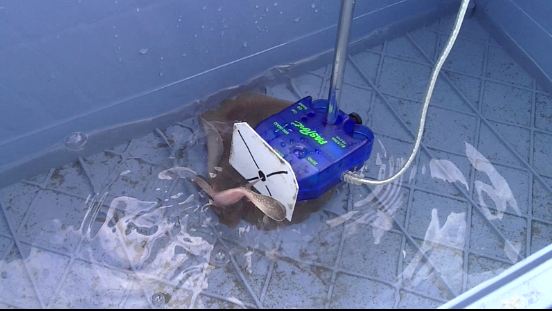
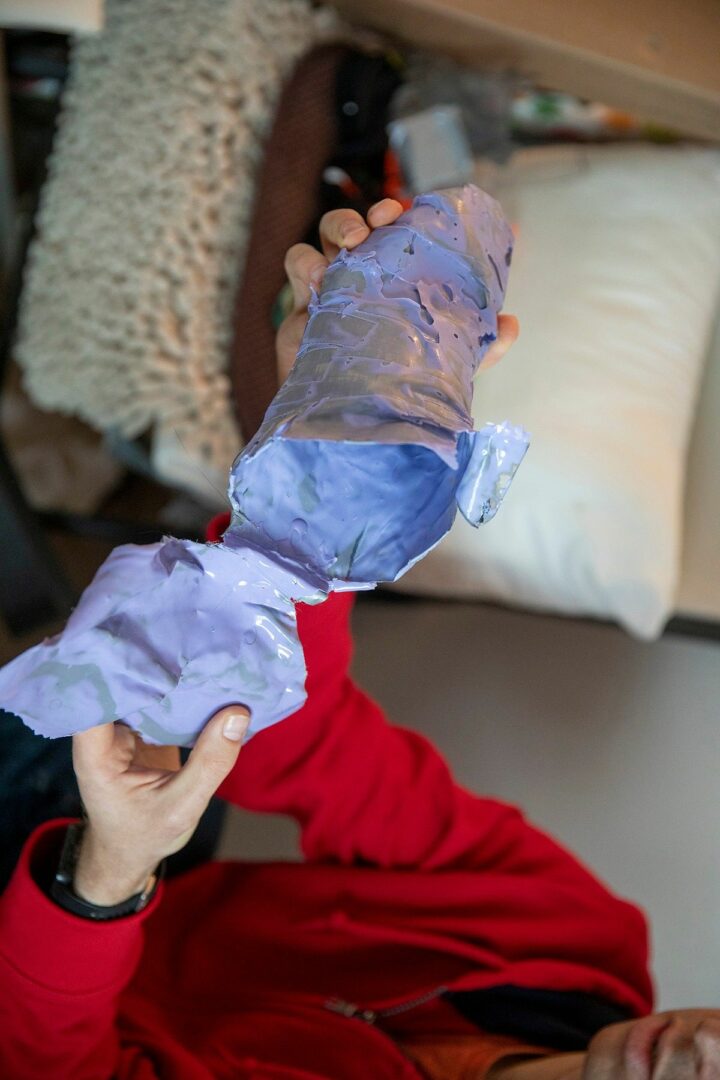
Thanks so much for sharing all these insights with us today. Before we go, is there a book that’s played in important role in your development?
The best business books I’ve read are (in order):
1) The Lean Startup, by Eric Ries–how to test whether or not people are interested in and willing to pay for the thing you’re building (and if so, what aspects they are most interestedin), before you spend years and hundreds and thousands of dollars building it
2) The Mom Test, by Rob Fitzpatrick–a way to sneakily interview potential customers to gain data on what businesses are worth purusing, in such a way that they are unable to lie to you (which is important because otherwise people will lie to be polite and you’ll never get any good data)
3) 80-20 Sales and Marketing, by Perry Marshall: how to efficiently use your time and focus it on what matters the most in business, and particularly in marketing.
Contact Info:
- Website: https://mydragonskin.com/
- Instagram: https://www.instagram.com/mydragonskin/
- Facebook: https://www.facebook.com/MyDragonSkin
- Linkedin: https://www.linkedin.com/in/randylewis77/
- Youtube: https://www.youtube.com/@dragonskin
- Other: https://portfolium.com/randylewis77/portfolio
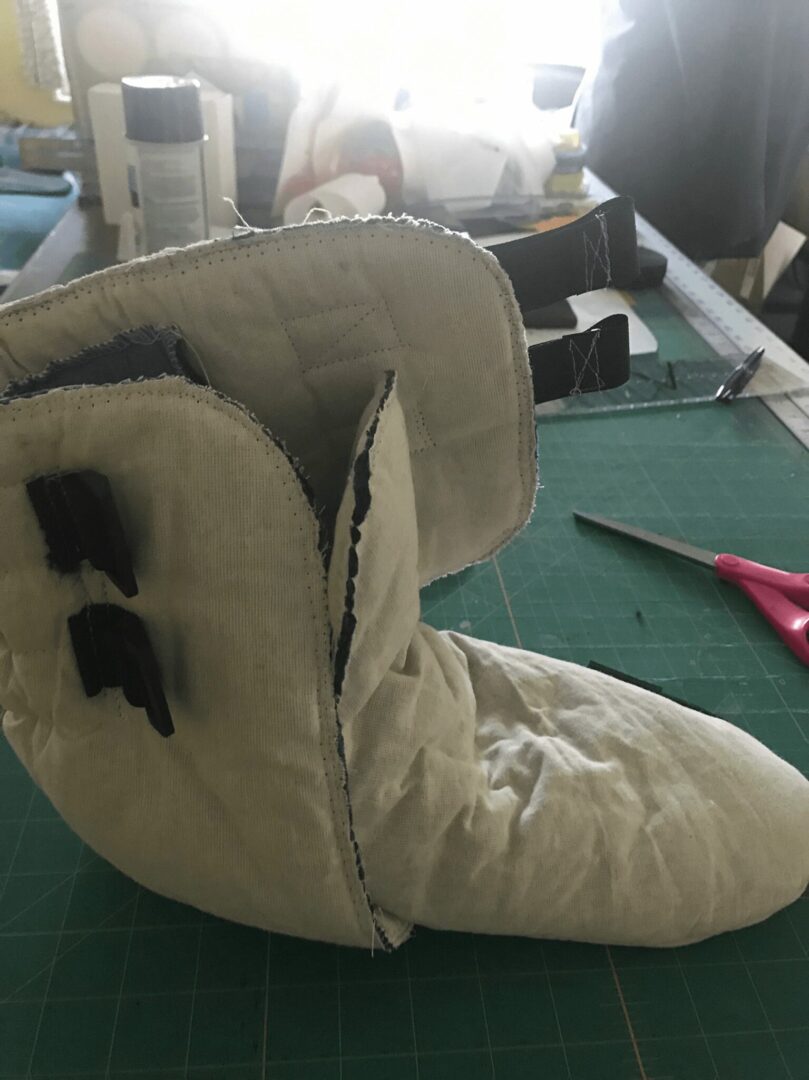
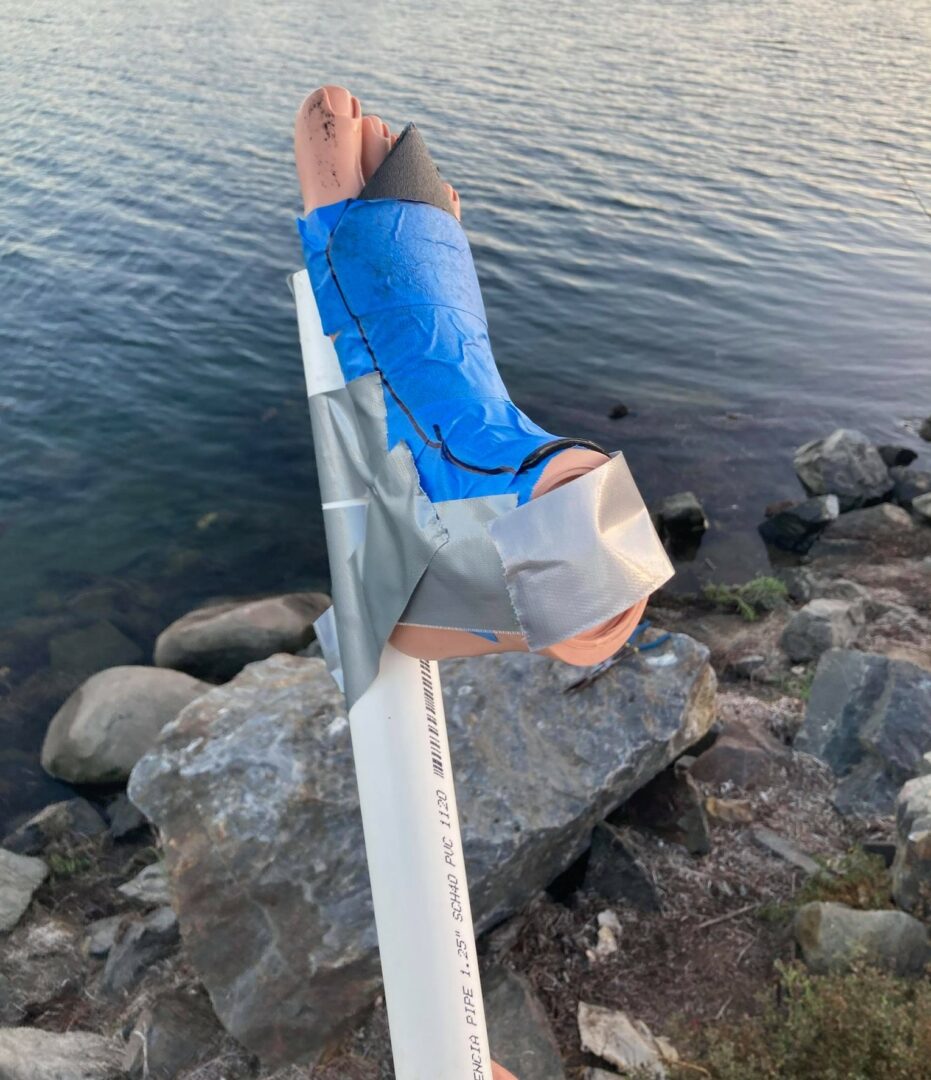
so if you or someone you know deserves recognition please let us know here.




